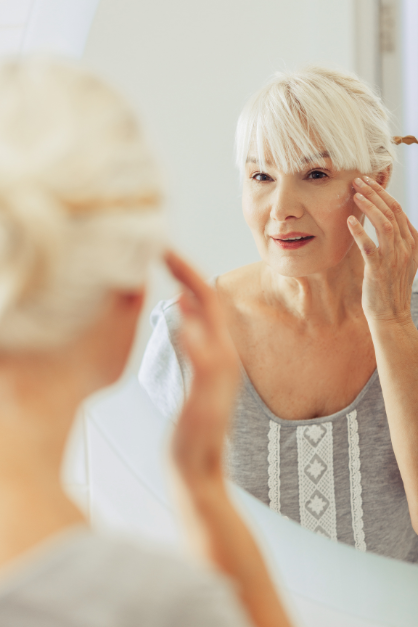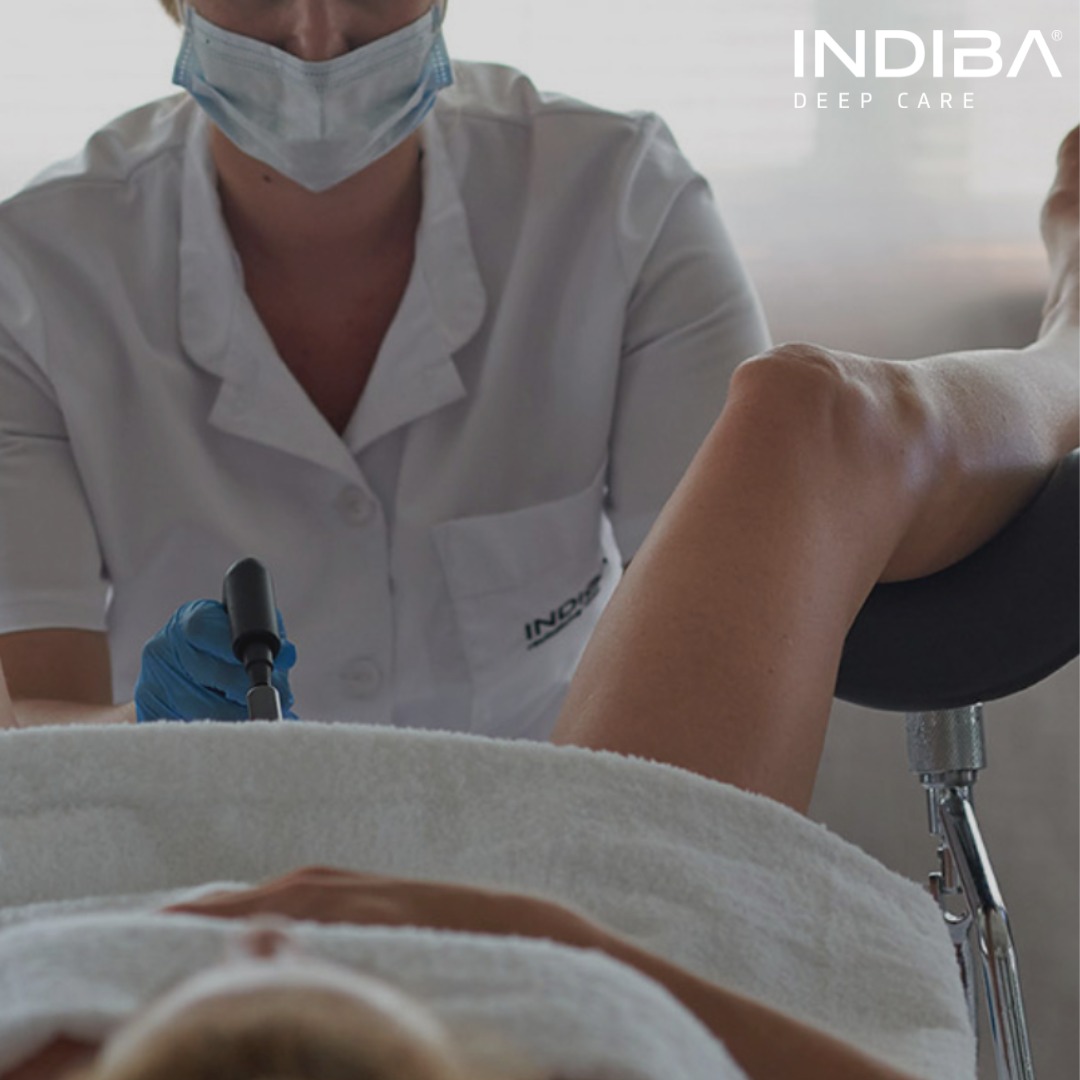Vaginal Dryness: Causes & Treatment
Women tend not to know what a 'normal' vagina looks or feels like. After all, we don't compare our vaginas with our girlfriends'. And without any point of comparison, some women worry that theirs is not normal in some way.
The truth is that there's no such thing as a 'normal' vagina. They are unique to each woman, so if your vagina is healthy and functional, then it's normal.

There are some vaginal conditions that can have a huge impact on your life even when your vagina is normal. Vaginal dryness is one of these problems. It's not unusual—or even uncommon—and it can happen even when your vagina is otherwise healthy.
In this article we will look at the causes of vaginal dryness, when it's normal or when you should seek medical attention, and how it's treated.
For some of the most effective treatments, you don't even need to see your GP.
What is vaginal dryness?
The vagina naturally produces its own lubricant from glands located near the vagina opening and the urethra. When a woman is sexually aroused, the production of this lubrication increases, but in a healthy vagina, there is some moisture at all times.
A clear or white discharge that doesn't smell bad is also normal.
As you might expect, vaginal dryness is caused when this natural lubrication is reduced or missing.
Symptoms of Vaginal Dryness
Many women won't realise they're being affected by this disorder until they experience pain during sex. But there are additional symptoms to look out for as well.
- Soreness, burning or itchiness inside or outside the vagina
- Increased urination
- Recurrent yeast infections or urinary tract infections (UTIs)
- Painful or uncomfortable sexual intercourse
- Bleeding after sex
- Discomfort when sitting, urinating or exercising
- Decreased libido and difficulty reaching orgasm
What causes vaginal dryness?
Vaginal lubrication is directly affected by the production of estrogen. Amongst other things, this hormone is responsible for keeping the vagina healthy, elastic and moisturised. Therefore, anything that affects the body's ability to product estrogen will cause some degree of dryness.
As your estrogen level declines, the vagina and vulva are prone to thinner skin that is less flexible, causing unpleasant inflammation and the dryness that we associate particularly with menopause. These changes in the vaginal tissues are known by some different names, including atrophic vaginitis, vaginal atrophy, vulvar atrophy or vulvovaginal atrophy.
A Menopause MOT from a specialist women's health physiotherapist can help diagnose the reasons for your age-related vaginal dryness and give you supportive advice and effective treatment.
But menopause isn't the only time you might be affected by less estrogen.
Causes of Low Estrogen Levels
- Menopause or perimenopause
- Excessive exercise or hypothalamic amenorrhea
- Diseases like autoimmune conditions or those that affect the pituitary gland
- Eating disorders
- Chemotherapy or other treatment that affects the ovaries
- Surgical removal of the ovaries
- Estrogen-blocking medications
- Certain genetic disorders

Other Reasons for Vaginal Dryness
In addition to declining levels of estrogen, problems with a dry vagina can be triggered by breastfeeding, hormone-based birth control, certain medications, like some antidepressants, diabetes and harsh soaps or perfumes used around the vagina. Douching can also strip the natural lubrication, leaving the area dry and uncomfortable.
Treatment for Vaginal Dryness
Quite often, women are only troubled by this condition when sex becomes painful (known as dyspareunia). And when intercourse becomes uncomfortable, it's likely to make you want to stop having sex altogether. It can be embarrassing, and many people don't want to discuss it. But it can lead to a host of problems, including low self-esteem, frustration, anxiety, depression and, of course, relationship issues.
For these reasons it's a good idea to seek treatment sooner rather than later.
Diagnosing Vaginal Dryness
It might be obvious when you're being affected by a lack of lubrication, but it's not always so clear. If you're experiencing any of the symptoms of vaginal dryness, then a visit to your doctor can be your first step.
They will take a complete medical history, ask about your symptoms and record any medications you're taking. They will also likely give you a pelvic examination and, perhaps, a blood test to look at your hormone levels or consider possible causes.
Women's Physio Treatments
A women's health physiotherapist will be able to identify the reasons you're suffering from vaginal dryness. After discussing your symptoms and history and examining you physically, they may propose a number of different treatments. These might include lifestyle changes (to encourage better natural vaginal lubrication prior to having intercourse, for example), artificial lubricants or INDIBA Activ therapy.
INDIBA stimulates and reorganises collagen fibres in the tissues of the body to reduce inflammation, pain, adhesions or fibrosis. It oxygenates and nourishes the affected tissues to improve their condition considerably. It's therefore a very effective treatment for many pelvic health issues, including vaginal dryness, dyspareunia and vulvovaginal atrophy.

Medical Treatment
Your GP can prescribe medications to help counteract vaginal dryness. Many of these drugs work by replacing lost estrogen, so they won't be suitable for everyone. Your doctor will be able to advise you about the risks and benefits of taking estrogen replacements.
For example, women who have or have had breast cancer, or who are at risk of breast cancer, may not be suitable for estrogen therapy.
Moisturisers and Lubricants
Vaginal moisturisers and lubricants are readily available from chemists without a prescription.
Vaginal Moisturisers
Moisturisers for the vagina are different from those used on the face and body. Remember that the perfume and other ingredients of normal moisturizer are not suitable for use on or around the sensitive tissues of the vagina, so you should only ever use formulas specially designed for intimate use. They work by replacing lost moisture on the inside of the vagina and typically need to be applied every few days. We love https://sylk.co.uk/
Vaginal Lubricants
These are products designed to make the vagina wet enough for sexual intercourse, so they are applied as needed. You may have heard this referred to as 'lube'. It can be very useful if dryness is having a negative impact on your sex life, making it enjoyable again. Lube might be oil-based or silicon-based, but most healthcare providers recommend solutions with a water base, as they contain fewer chemicals. That means they're gentler on the skin and leave virtually no residue. They also more closely mimic natural lubricating fluid and are less messy.
When to Call the Doctor
Lack of lubrication doesn't usually mean you have a serious condition, so you may want to try home remedies or over-the-counter options before seeking medical attention.
However, if vaginal dryness is having a negative effect on your daily life, doesn't improve or if you have bleeding, then don't wait to seek advice.
Book A Women's Physio Consultation Now
For more information about how to treat vaginal dryness, painful intercourse or other women's health problems, call Magdalena on 07877 017 936 or drop PelviCare an email. Alternatively, you can book an appointment online.
PelviCare Women's Health Physiotherapy is located in Greenwich, London, serving women across South London, East London, Essex, Kent and beyond.
Recommended Articles:
Answers to Your Top Menopause Questions